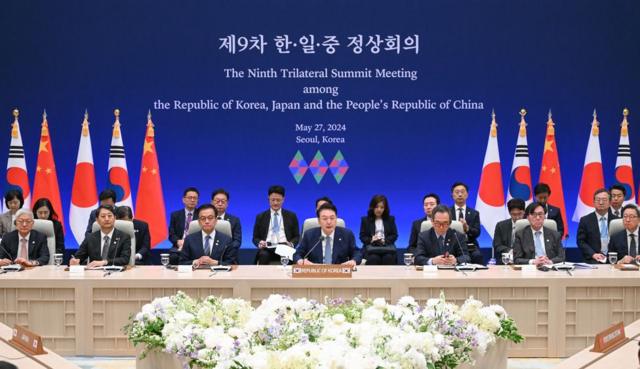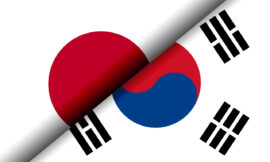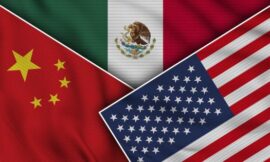The recent Japan-China-South Korea trilateral summit in Seoul, held after a five-year break, aimed to strengthen cooperation but yielded limited progress. Japanese Prime Minister Kishida Fumio, South Korean President Yoon Suk-yeol, and Chinese Premier Li Qiang agreed to hold regular summits and identified seven areas for cooperation: people-to-people exchanges, sustainable development, economic cooperation, public health, science and technology, digital transformation, and disaster relief.
Trade was a key focus, with China urging faster free trade agreement negotiations and rejecting protectionism. Despite the economic focus, significant security issues remain unresolved. Kishida highlighted the threat of North Korea’s nuclear program, underscored by a failed North Korean spy satellite launch during the summit. China avoided supporting denuclearization to prevent angering North Korea.
Japan’s relations with its neighbors remain strained due to historical grievances with South Korea and territorial disputes with China and South Korea. The Fukushima water release led to China banning Japanese seafood imports, further straining ties. However, Japan-South Korea relations have improved, with Yoon pushing for closer cooperation with Japan and the U.S., despite skepticism in South Korea.
During the Japan-China summit, Kishida urged China to lift its seafood import ban, but no resolution was reached. China’s push for economic cooperation is driven by concerns over its economic standoff with the U.S. Li emphasized improving the business environment for foreign companies.
The summit’s joint declaration aimed to show commitment to cooperation, focusing on cultural goals and planning increased people-to-people exchanges by 2030. Japan will host the next summit in 2025, committed to dialogue despite diplomatic challenges.





